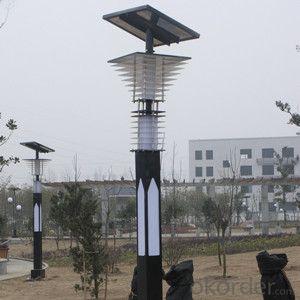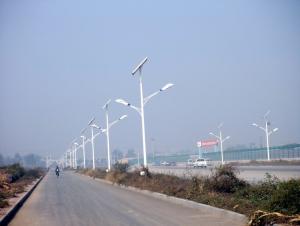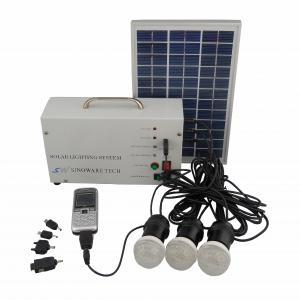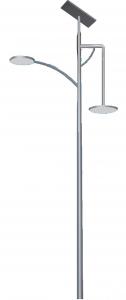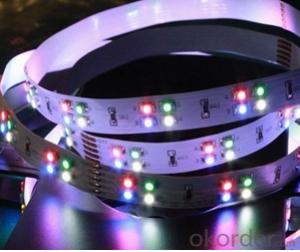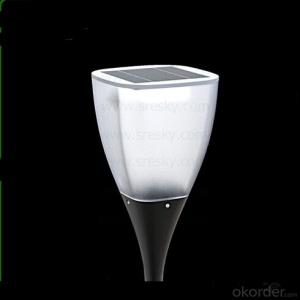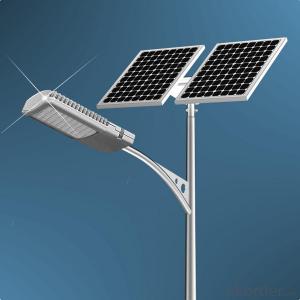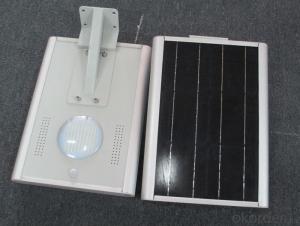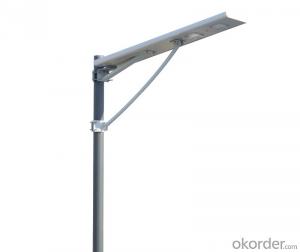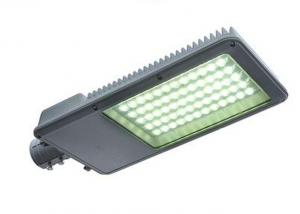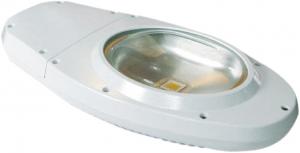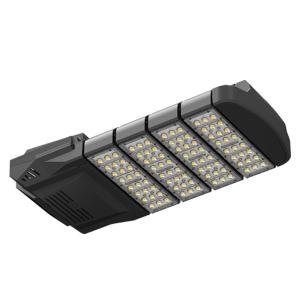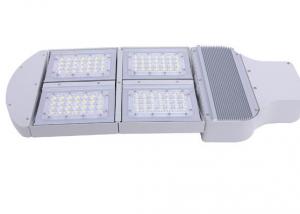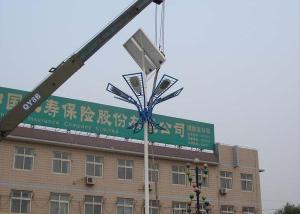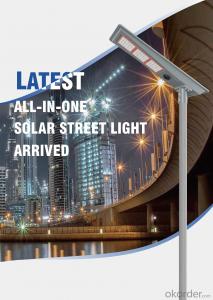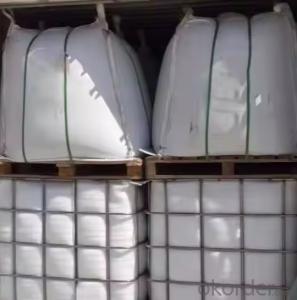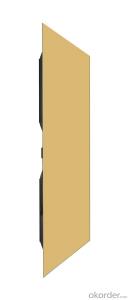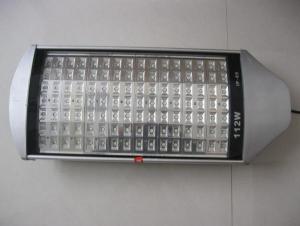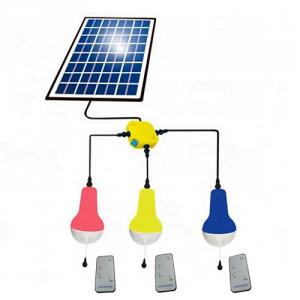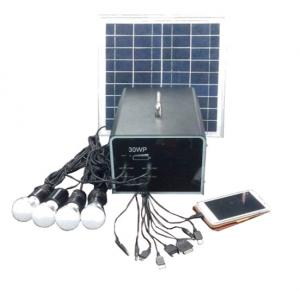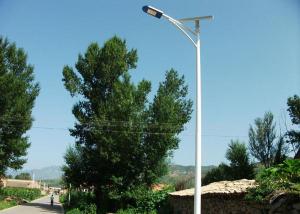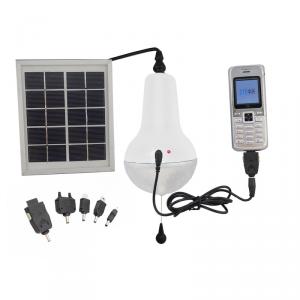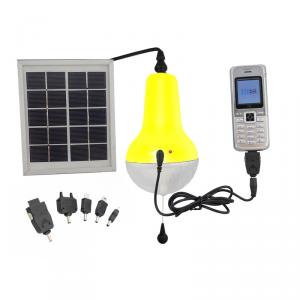LED Solar Garden Lights JMTT-010
- Loading Port:
- Shanghai
- Payment Terms:
- TT OR LC
- Min Order Qty:
- 10 pc
- Supply Capability:
- 10000 pc/month
OKorder Service Pledge
Quality Product, Order Online Tracking, Timely Delivery
OKorder Financial Service
Credit Rating, Credit Services, Credit Purchasing
You Might Also Like
| No. | Model | Specification | Lifetime | Guarantee | Certificate |
| 1 | Pole | hot zinc-plated steel metallic paint, color could be customized , with all-stainless steel fasteners, 2.8-3.5m height | 20years | 10 years | CE |
| 2 | Lamp | LED ball lamp (color optional), 5W, 7W, 9W | 80000hrs | 5 years | CE. ROHS |
| 3 | Controller | Solar intelligent special controller, with light control switch | 3-5years | 3 years | CE. ROHS |
| 4 | Solar Panel | 20W ~ 60W imported poly-crystalline silicon solar cell module dedicated service life of 20 years | 20years | 5 years | TUV |
| 5 | Battery | 25AH ~ 70AH maintenance-free lead-acid battery, overcharge and over discharge protection, 3 years life. | 7-8years | 3 years | UL |
| 6 | Accessories | Panel bracket, base anchor bolts, cables, fasteners ect. | 10years | 3 years | CE |
| Please contact our sales for suitable system design! | |||||
- Q:Can solar lights be used for outdoor concerts?
- Yes, solar lights can definitely be used for outdoor concerts. They are a great alternative to traditional lighting options as they are energy-efficient, environmentally friendly, and do not require electrical outlets. Solar lights can effectively illuminate concert venues, stages, walkways, and seating areas, enhancing the overall experience while minimizing energy consumption.
- Q:How do I troubleshoot solar lights that are not working?
- To troubleshoot solar lights that are not working, start by checking the battery. Ensure it is fully charged and properly connected. If the battery is fine, inspect the solar panel for any dirt or debris blocking sunlight. Clean it gently if needed. Additionally, confirm if the light's on/off switch is in the correct position. If none of these steps resolve the issue, consider replacing the battery or contacting the manufacturer for further assistance.
- Q:Are solar lights suitable for rooftops?
- Yes, solar lights are suitable for rooftops. They are easy to install, require no wiring, and use renewable energy from the sun to provide illumination. They are also cost-effective and environmentally friendly, making them a popular choice for rooftop lighting solutions.
- Q:Can solar lights be used for outdoor sports stadiums or arenas?
- Yes, solar lights can be used for outdoor sports stadiums or arenas. Solar lighting systems are a sustainable and cost-effective option for illuminating large outdoor spaces, providing ample lighting for sporting events while reducing reliance on traditional energy sources. They can be easily installed and are equipped with efficient solar panels that convert sunlight into electricity, ensuring continuous lighting during nighttime events. Additionally, solar lights offer flexibility in terms of placement and can be adjusted to meet specific lighting requirements, making them a viable option for outdoor sports stadiums or arenas.
- Q:Can solar lights be used in areas with high wind speeds?
- Yes, solar lights can be used in areas with high wind speeds. However, it is important to ensure that they are properly installed and secured to withstand strong winds.
- Q:Are solar lights energy efficient?
- Yes, solar lights are energy efficient. They harness energy from the sun through solar panels, converting it into electricity to power the lights. This renewable energy source makes solar lights more sustainable and reduces reliance on traditional energy sources. Additionally, solar lights have built-in sensors that allow them to automatically turn on and off, optimizing energy usage and reducing wastage.
- Q:Can solar lights be used for illuminating flagpoles?
- Indeed, flagpoles can certainly be illuminated using solar lights. The purpose of solar lights is to harness solar energy and convert it into electricity, which in turn powers the light source. Typically, these lights come equipped with solar panels that absorb sunlight during the day, subsequently charging the batteries within them. As night falls, the lights automatically turn on and provide illumination for the flagpole. Solar lights prove to be a fantastic choice for flagpoles due to their energy efficiency, cost-effectiveness, and environmentally friendly nature. They eliminate the need for electrical wiring and connection to the power grid, saving both money and hassle. Moreover, installing solar lights is a simple task, requiring minimal upkeep. When selecting solar lights for flagpoles, it is important to consider their brightness and durability. Opt for lights that offer ample illumination, ensuring the flag is adequately displayed even in low-light conditions. Additionally, make sure the lights are weatherproof and capable of enduring outdoor elements such as rain, wind, and extreme temperatures. In summary, solar lights present an outstanding option for illuminating flagpoles, providing a practical and sustainable solution to effortlessly showcase the flag.
- Q:How do solar lights handle radio frequency interference?
- Solar lights typically do not handle radio frequency interference (RFI) directly, as they are not specifically designed to combat RFI. However, due to their nature and design, solar lights are generally not prone to radio frequency interference. Solar lights operate using photovoltaic cells, which convert sunlight into electricity. They are powered by solar panels that absorb sunlight during the day and store the energy in rechargeable batteries. This means that solar lights do not rely on any external power sources or electrical connections, which reduces the chances of RFI. RFI can occur when various electronic devices emit electromagnetic waves that interfere with radio signals. In the case of solar lights, since they do not have internal electronics or electrical components that produce electromagnetic radiation, they are less likely to emit any interference that could disrupt radio frequencies. However, it is worth noting that solar lights may still be affected by external RFI sources if they are located in close proximity to devices that emit strong radio signals. For example, if a solar light is positioned near a powerful radio transmitter or other electronic equipment, there may be a possibility of interference. In such cases, the interference can potentially disrupt the functionality of the solar light, causing flickering, inconsistent performance, or complete failure. However, this is relatively rare and depends on the specific circumstances and strength of the interfering radio signals. To mitigate the risk of interference, it is advisable to install solar lights away from strong RFI sources and ensure that they are properly shielded if necessary. It is also important to choose high-quality solar lights from reputable manufacturers, as they are more likely to have undergone testing and built-in measures to minimize the risk of RFI.
- Q:Are solar lights resistant to animal or insect damage?
- Solar lights are not completely resistant to animal or insect damage, as they can be vulnerable to certain types of animals or insects. However, most solar lights are designed to be durable and have protective features to minimize the risk of damage.
- Q:Can solar lights be used for outdoor restaurants or cafes?
- Yes, solar lights can be used for outdoor restaurants or cafes. Solar lights are a great option for outdoor lighting as they are eco-friendly, cost-effective, and easy to install. They can illuminate outdoor seating areas, walkways, and entrance areas, creating a welcoming and pleasant ambiance for customers. Additionally, solar lights do not require any wiring or electricity, making them a convenient and safe choice for outdoor spaces.
1. Manufacturer Overview |
|
|---|---|
| Location | |
| Year Established | |
| Annual Output Value | |
| Main Markets | |
| Company Certifications | |
2. Manufacturer Certificates |
|
|---|---|
| a) Certification Name | |
| Range | |
| Reference | |
| Validity Period | |
3. Manufacturer Capability |
|
|---|---|
| a)Trade Capacity | |
| Nearest Port | |
| Export Percentage | |
| No.of Employees in Trade Department | |
| Language Spoken: | |
| b)Factory Information | |
| Factory Size: | |
| No. of Production Lines | |
| Contract Manufacturing | |
| Product Price Range | |
Send your message to us
LED Solar Garden Lights JMTT-010
- Loading Port:
- Shanghai
- Payment Terms:
- TT OR LC
- Min Order Qty:
- 10 pc
- Supply Capability:
- 10000 pc/month
OKorder Service Pledge
Quality Product, Order Online Tracking, Timely Delivery
OKorder Financial Service
Credit Rating, Credit Services, Credit Purchasing
Similar products
New products
Hot products
Related keywords
